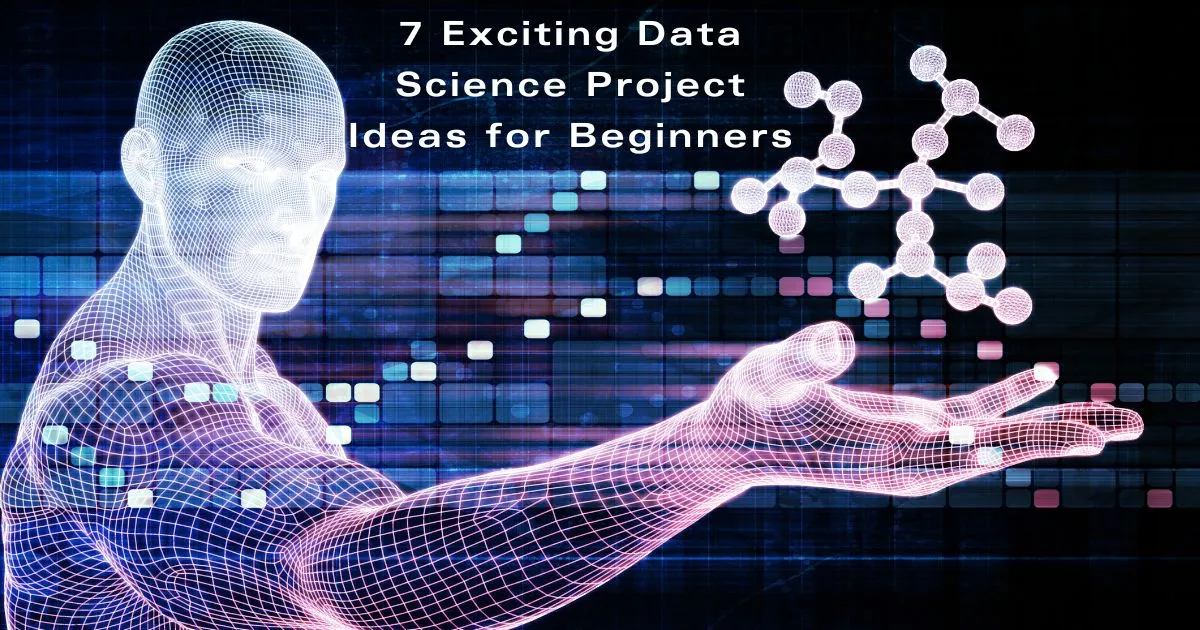If you’re new to data science and want to enhance your portfolio, dive into these projects right away!
If you are a novice in data science seeking to enhance your skills through practical projects, this collection of data science initiatives is tailored for you.
This article will examine seven accessible data science projects that emphasize fundamental concepts, including data collection, data cleaning, visualization, API development, dashboard creation, and machine learning.
1. Extracting Film Information from IMDB through Web Scraping.
Acquiring data through web scraping is a vital competency in the field of data science. Therefore, it is advisable to begin by mastering the techniques for extracting web data for analytical purposes.
In this project, you will gather movie-related information, including ratings, genres, and release years from IMDB. The BeautifulSoup library in Python will facilitate the extraction of data, while pandas will be employed for data cleaning and analysis.
This project will enable you to manage and analyze disorganized, unstructured data, and will cover the following skills:
– Utilizing BeautifulSoup to scrape HTML content.
– Cleaning and organizing data with pandas.
– Analyzing trends, such as average ratings categorized by genre.
Skills: Web scraping, data manipulation with pandas.
2. Creating a Personal Financial Tracking Tool
Discover how to manage tabular data by building your own personal expense tracker. This project is a great way to enhance your skills in data manipulation using pandas while you sort and analyze your spending. You’ll import CSV files containing your expenses, classify your transactions, and produce summaries of your financial habits.
Once you have your expense data in a suitable file, you can:
Import the data from a CSV file or any format you prefer, then clean and prepare it.
Classify transactions into categories like education, groceries, rent, entertainment, and others.
Compute monthly spending summaries.
Create basic visualizations to gain insights into your spending behavior.
Skills: Data manipulation with pandas, file format handling.
3. Creating a Weather Dashboard.
Acquire the skills to interact with APIs in Python by developing a dashboard that displays real-time weather information. Utilize the OpenWeather API to retrieve weather data for various cities and represent it visually through Plotly or Seaborn.
You may undertake the following tasks:
Obtain data from the OpenWeather API by employing Python’s requests library.
Generate visualizations for temperature, humidity, and other relevant metrics.
Construct a dashboard utilizing Streamlit or Dash.
Skills: API interaction, data visualization, and dashboard development.
4. Developing a Sales Dashboard for E-commerce.
This initiative centers on the visualization of e-commerce sales data. You will utilize sales transaction information that includes product details, customer information, and order specifics to develop an interactive dashboard. This tool will assist businesses in monitoring sales trends, identifying top-selling products, and assessing overall revenue.
In this endeavor, you may consider the following actions:
Acquire e-commerce datasets, such as the Online Retail dataset available from the UCI Machine Learning repository, or explore similar datasets on Kaggle.
Perform data cleaning and aggregation based on categories such as products, geographical regions, and time frames.
Employ Plotly to create interactive bar charts and line graphs that illustrate revenue trends, product performance, and customer behavior.
Attempt to construct a dashboard using Dash that enables users to filter data according to time periods or product categories.
Skills: include data cleaning, aggregation, business storytelling, and the development of interactive dashboards.
5. Conducting Sentiment Analysis on Twitter Posts.
Sentiment analysis serves as an excellent introductory project for those beginning to work with text data. This endeavor will enable you to utilize the Tweepy library to retrieve tweets related to a specific topic, such as a trending hashtag, and subsequently analyze the sentiments expressed using the TextBlob library.
Engaging in this project will provide a foundational understanding of Natural Language Processing (NLP) with Python:
– Retrieve tweets based on selected keywords or hashtags.
– Clean and preprocess the text data by eliminating special characters, links, and other extraneous elements.
– Employ TextBlob to categorize the sentiments of the tweets.
– Assess and visualize the distribution of sentiments.
Skills acquired: Natural Language Processing (NLP), Sentiment Analysis.
6. Developing a Customer Segmentation Framework.
Customer segmentation enables organizations to customize their marketing strategies through a deeper understanding of customer behaviors. In this project, you will employ the K-Means clustering algorithm to categorize customers according to various attributes, including age, income, and spending patterns.
You will implement clustering, a widely used unsupervised learning technique, on actual data.
- Find a dataset of customer data to work with.
- Preprocess the data and create new features as required.
- Use scikit-learn to implement K-Means clustering.
- Visualize the clusters and analyze the characteristics of each group.
- Skills: Clustering, handling large datasets
7. Implementing a Machine Learning Model Using FastAPI.
Building a machine learning model with scikit-learn is important, but deploying it so others can interact with it is another valuable skill. Try to deploy a machine learning model as an API using FastAPI. You can also go further by containerizing the application with Docker.
Here’s what you can do:
- Train a simple machine learning model, say a simple classification model using Scikit-learn or any of the other projects you’ve worked on.
- Build an API with FastAPI to serve predictions from the ML model.
- Containerize the API using Docker.
Skills: Development of APIs, utilization of FastAPI, deployment of models, and implementation of Docker.
Concluding Remarks
Each of these initiatives aims to facilitate the acquisition and application of fundamental data science competencies. Whether your interests lie in web scraping, API development, or exploring machine learning, these concepts will serve as a foundation for your journey.
Engaging in practical work is the most effective method of learning, so select a project and commence coding today.

